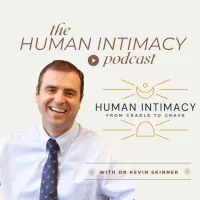Episode Description
In this episode, Dr. Kevin Skinner and MaryAnn Michaelis, LCSW, dive deep into the destructive cycle of shame and its profound impact on relationships. Shame, often rooted in early childhood experiences, can silently disconnect partners—pulling one inward while leaving the other feeling abandoned and unseen.
Together, Kevin and MaryAnn explore:
-
How shame manifests in the body and nervous system as an automatic protective response.
-
The cycle of shame between betrayed partners and those who have acted out, and why both can feel isolated and misunderstood.
-
The difference between guilt ("I made a mistake") and shame ("I am a mistake").
-
Practical steps to recognize, name, and address shame—such as identifying its origins, noticing its physical cues, and finding safe spaces to share vulnerably.
-
The role of vulnerability, responsibility, and self-compassion in breaking free from shame’s grip and restoring intimacy.
Listeners will walk away with a clearer understanding of how shame disconnects us from those we love, and with tools to begin shifting toward presence, confidence, and connection.
📚 Resources-
Books & Research
-
The Gifts of Imperfection by Brené Brown – A guide to embracing self-compassion and resilience.
-
Daring Greatly by Brené Brown – On the power of vulnerability in relationships.
-
Power vs. Force by David R. Hawkins – Exploring emotional energy levels, including shame as the lowest.
-
Childhood and Society by Erik Erikson – Psychosocial developmental stages, including shame vs. initiative.
-
The Body Keeps the Score by Bessel van der Kolk – On trauma, the nervous system, and body memory.
-
-
Therapeutic Tools
-
Emotional Floatback Technique – Tracing current shame responses back to earlier life experiences.
-
Acknowledge, Validate, Reassure (AVR) – A communication tool to reduce shame and increase connection.
-
Support Groups & 12-Step Programs – Safe spaces to share struggles, reduce secrecy, and experience acceptance.
-
-
Practical Applications
-
Notice physical shame signals (flushed cheeks, tight stomach, loss of eye contact).
-
Give shame a voice—safely name it out loud to lessen its power.
-
Replace shame with responsibility: shift from self-condemnation to ownership of mistakes.
-
Cultivate self-compassion: learning to sit with suffering without rejecting yourself.
-
- Learn more @Humanintimacy.com
